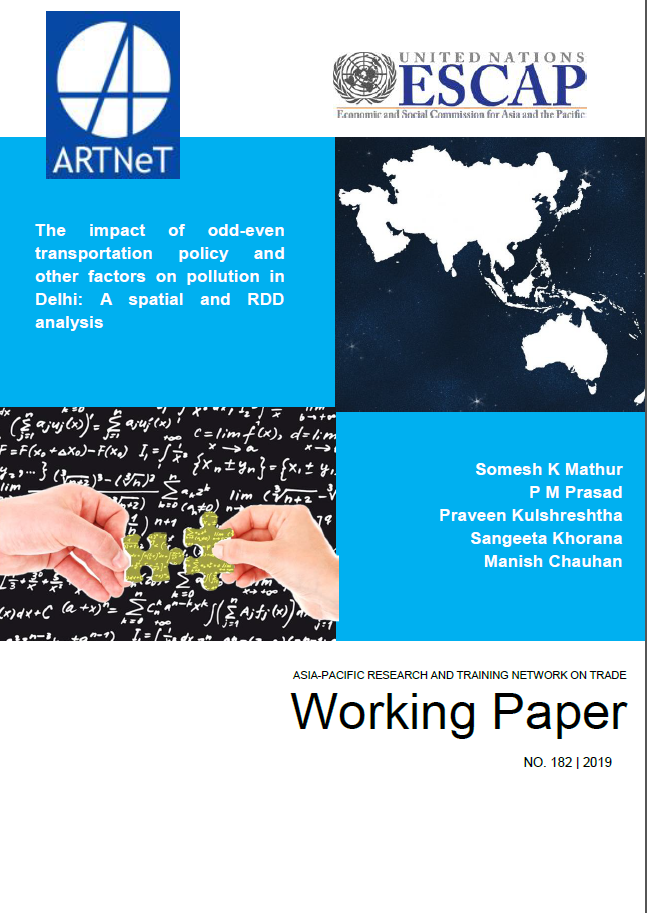The impact of odd-even transportation policy and other factors on pollution in Delhi: A spatial and RDD analysis

This paper is motivated by persistent environmental problems in Delhi, India which present a serious threat to the well-being of the people in the city. The authors use a statistical approach to quantify the relationship between new transportation policy adopted by the Delhi Government, other controlled factors like meteorological conditions, price of fossil fuel, ban on crackers, burning of agriculture residue, among others on the concentration of various gaseous pollutants and air pollution levels at certain measurement stations in Delhi. Moreover, they try to explain whether the odd-even transportation policy has been able to reduce pollution in Delhi both in short and long run and its impact on pollution levels existing in Delhi. At the end, they suggest some policy measures which should be undertaken to reduce pollution levels in Delhi. This paper is motivated by persistent environmental problems in Delhi, India which present a serious threat to the well-being of the people in the city. The authors use a statistical approach to quantify the relationship between new transportation policy adopted by the Delhi Government, other controlled factors like meteorological conditions, price of fossil fuel, ban on crackers, burning of agriculture residue, among others on the concentration of various gaseous pollutants and air pollution levels at certain measurement stations in Delhi. Moreover, they try to explain whether the odd-even transportation policy has been able to reduce pollution in Delhi both in short and long run and its impact on pollution levels existing in Delhi. At the end, they suggest some policy measures which should be undertaken to reduce pollution levels in Delhi.
